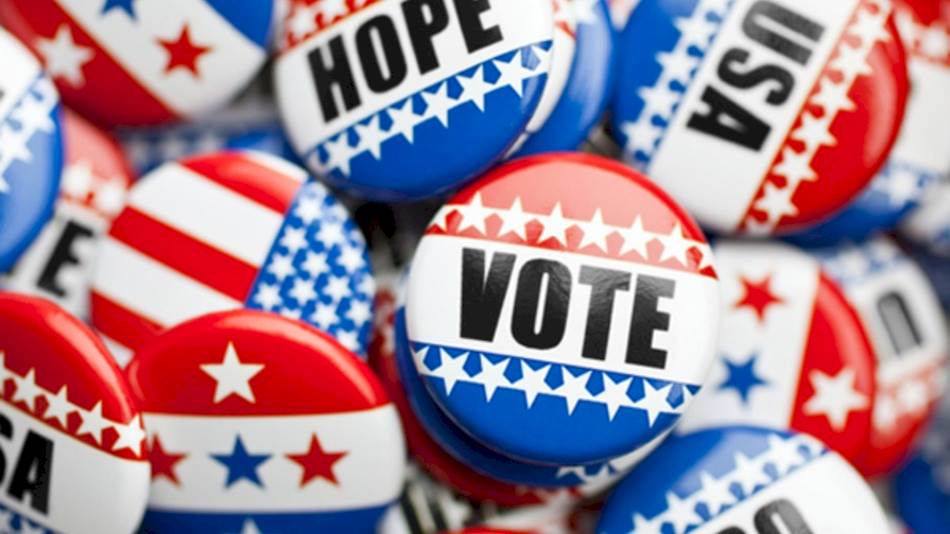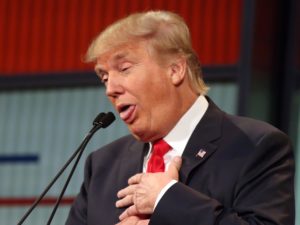
Donald Trump’s chances
HAVANA – For most people in the world, including for most Americans, it is incomprehensible that a person like Donald Trump could have advanced to this point in the U.S. electoral process and even might end up elected president of the United States.
His speech — xenophobic, racist, arrogant and uneducated — seems more intended to alienate voters than to win an election. Except that one fourth of U.S. voters think like him. And that could be enough to win the elections in a country where barely half the registered voters vote.
Actually, not all his followers are “deplorables,” as his Democratic opponent described them, but people who work very hard, care for their families, go to church on Sundays and even contribute to charity. What could generate so much hatred toward others among ordinary people who believe their access to Heaven is assured?
The answer is fear. They fear the terrorism that they believe lurks in the minds of all Muslims; they fear the blacks, whom they always consider as criminals; homosexuals, who try to corrupt their children, and especially the Latino immigrants, who they believe have come en masse to steal their jobs and forever change a culture they assume to be unique, superior and white.
Discrimination against immigrants is part of the history of the United States and is ruled by a morbid logic that, for centuries, has turned those who are discriminated against into discriminators.
The reasons why the United States has been and continues to be the destination par excellence of the world’s migrants lie not only in the need for manual labor or the attractiveness of economic gains compared with the countries of origin but also in the very nature of the system, inasmuch as the immigrants represent a resource for employers to degrade the value of the work force and weaken the class cohesion of the workers.
Because the predominant culture never blames the employers, public opinion tends to repudiate the newcomers, who are assumed to be strange and inferior.
At times of economic decay and social polarization, this problem turns particularly hot and explains why the topic of migration has become the focus of electoral disputes.
It is not at all strange, then, that many agree with Trump that it is necessary to build a wall and toss back the immigrants over it. Or even — without reaching such extreme — that they consider it unfair to pay taxes to guarantee immigrants a minimum of social aid because they consider them a public burden.

It is much too complex and much too manipulated a subject to be understood by the U.S. voters. As expressed by Zbigniew Brzezinski, one of the greatest theoreticians of the hegemonic U.S. model (and its occasional creator), among the causes that explain the relative deterioration of the system is the political ignorance of the American people. This makes the system an easy prey of demagogues like Donald Trump, who is certainly not the only one.
One of the factors favoring Trump is that the American people are tired of their politicians. All polls point to that, and the alleged values accumulated by Hillary Clinton throughout her long political career have become more an inconvenient than an element in her favor. Add to that the lack of confidence that she generates among the Democratic voters themselves.
Paradoxically, working in Trump’s favor is the fact that he is considered by many the supreme “anti-politician,” an indication of the crisis that the model of U.S. governance is going through.
Perhaps one of the most interesting aspects of Trump’s campaign is his slogan to “make America strong again.” That has been said, in one way or another, by lots of U.S. politicians, but Trump’s arguments are novel.
Unlike Clinton, he declares himself an enemy of Wall Street, of the transnational companies that take jobs to foreign countries and of the expenditures created by U.S. interventionism elsewhere in the world. What’s interesting is not that he will keep his word and becomes the first anti-imperialist president in many centuries, but that those statements are made by someone who will say anything to mobilize his voters, demonstrating that those ideas are in the minds of many people.
In reality, we’re in the presence of a campaign where both candidates show unprecedented levels of rejection. That could augur high levels of voter abstention, and that could favor the Republican candidate if he manages to mobilize the always monolithic and participative conservative vote. But this is not guaranteed, because even the party’s establishment fears the unpredictable and extravagant New York magnate.

Although almost all analysts agree that Trump will not win the election, the reality is that he cannot be written off. Clinton is no Obama and, in any case, we should expect a new scenario in U.S. policy.
Anyway, since we don’t know who will win and nobody knows what to expect, no matter what the results, what’s most important is to understand that we’re in the presence of an unprecedented electoral process that indicates the degree of bewilderment and lack of consensus in U.S. society, so that any president will have to deal with these contradictions.
What’s encouraging is that not only the far-right fundamentalist positions impose themselves in this context. Let us remember the meaning of the campaign waged by Bernie Sanders, who couldn’t win by declaring himself a socialist but who demonstrated the development of ideas that seemed inconceivable in the U.S. political context. Those people are still there and the question is how far can they grow and organize as a political force.

